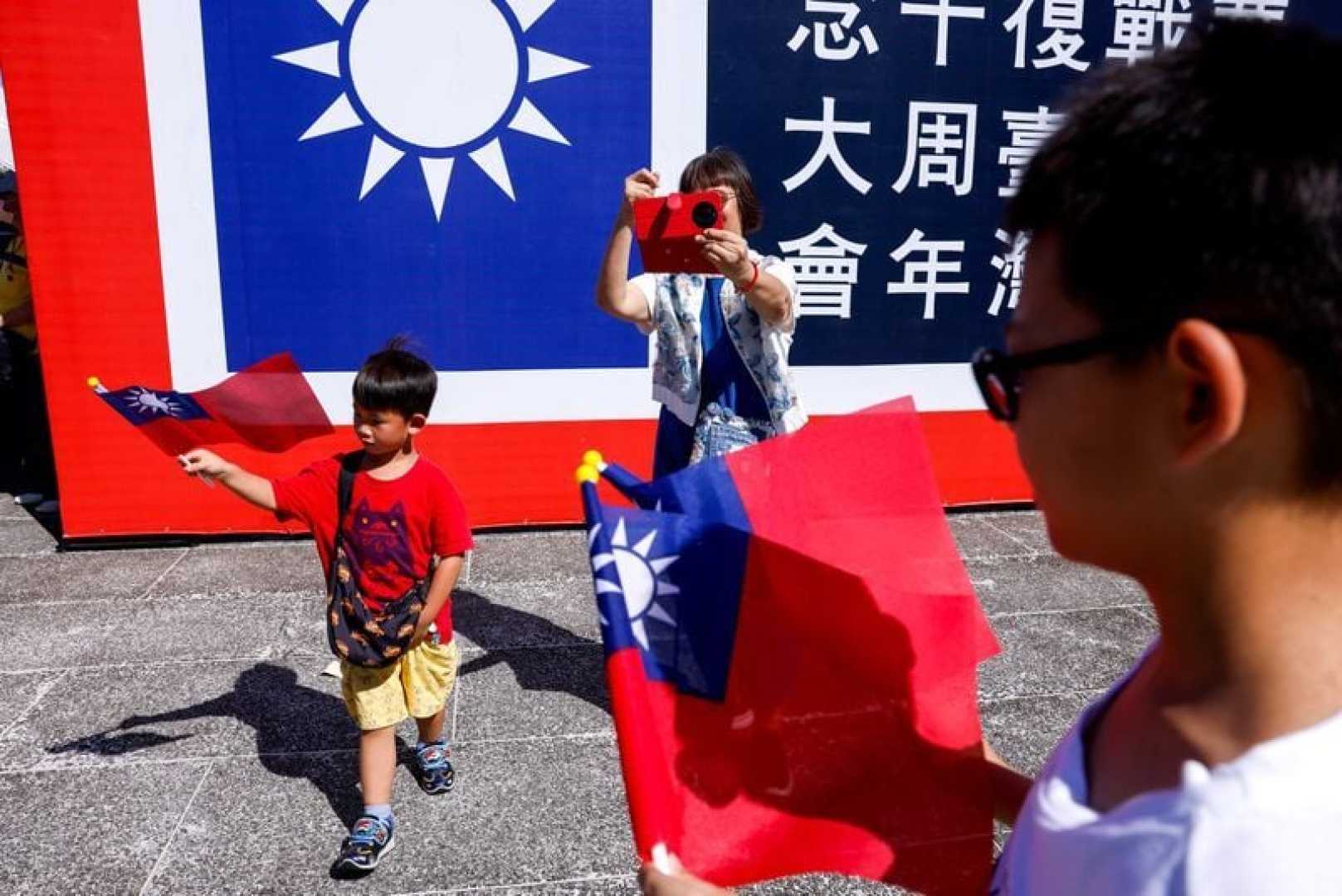World
Taiwan Commemorates 80 Years Since World War Two’s End Amid Tensions

TAIPEI, Taiwan, Aug 24 (Reuters) – Veteran Pan Cheng-fa, 99, vividly recalls his fight for China against Japan during World War Two. However, he grows agitated discussing the role of communist forces who were at that time an uneasy ally with his republican government. ‘We gave them weapons, equipment – we strengthened them,’ Pan stated at an event in Taipei honoring the war’s 80th anniversary.
The tensions escalate as China prepares for a mass military parade in Beijing next month to mark the end of the war. Both Taiwan, officially known as the Republic of China, and the People’s Republic of China are engaged in a heated debate over historical narratives and who rightfully deserves credit for the victory.
Fighting in China intensified following Japan’s full-scale invasion in 1937 and continued until Japan’s surrender in 1945, which coincided with Taiwan being transferred to the Republic of China. ‘After Japan was defeated, the communists’ next target was the Republic of China,’ Pan said, alluding to the subsequent resumption of the civil war that led to the communist victory in 1949.
The Chinese Communist Party emphasizes its struggle against Japan but many battles were fought by the republic’s forces, and it was the Republic of China that signed the peace agreement as one of the allied nations. Taiwan’s top China-policy maker, Chiu Chui-cheng, remarked on August 15, the anniversary of Japan’s surrender, that ‘during the Republic of China’s war of resistance against Japan, the People’s Republic of China did not even exist.’
Chiu pointed out that the communists’ wartime strategy was primarily about consolidating their power rather than opposing Japan, while Taiwan’s memorial events largely ignore the communists’ role, focusing instead on the contributions of the nationalist republic forces.
A defense ministry concert in Taipei included performers dressed as World War Two republican soldiers and featured images of the Flying Tigers, the American pilots who fought for the republic’s air force. The program stated, ‘History affirms that the War of Resistance was led and won by the Republic of China.’
China has countered these claims, with the People’s Daily stressing the need to guard against what it views as a distortion of the Chinese Communist Party’s historical role. China insists the victory belongs to all Chinese people, including those in Taiwan, celebrating the transfer of Taiwan to Chinese rule post-war.
In contrast, Taiwan argues that no agreements explicitly handed Taiwan over to the Beijing-run People’s Republic of China, which was founded in late 1949. Taiwan’s President Lai Ching-te marked the surrender anniversary with a Facebook statement, asserting that any aggression would be defeated, a clear reference to China’s military threats.
The People’s Republic of China maintains it is the rightful successor to the Republic of China and labels Taiwan as an inherent part of its territory, a view vehemently opposed by Taipei. Taiwan’s government has encouraged citizens to avoid attending China’s military parade, warning that it might lend legitimacy to Beijing’s territorial claims.
Veteran Pan, whose family members were brutalized when he fled to Taiwan, dismisses Beijing’s parade as irrelevant to him, stating, ‘I can’t say anything good about the communists.’












